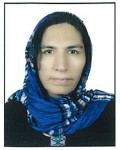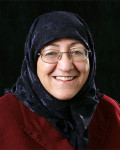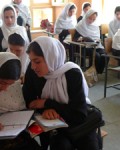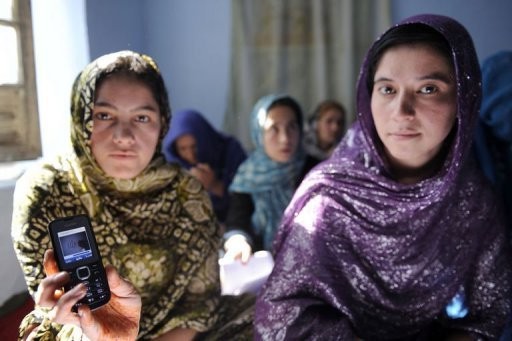By Marnie Gustavson
Executive Director
PARSA
www.afghanistan-parsa.org
[email protected]
November 2015, I sit with my psychosocial trainer Fatema and eight Afghan women leaders from Zardozi Women’s Business Centers to launch our women’s peer counseling group that we call “Healthy Afghan Woman’s Support Group”. In my experience, announcing a program as a psychosocial one can be the “kiss of death” for women’s support groups in Afghanistan - unless there is a heavy stipend offered for attending. Even though I had oriented them to our work a couple weeks back and assured all attending that this was not a program for crazy people, my attendees were very nervous about working with me.
Afghan women are some of the most socially oppressed women in the world, living in a culture that condones violence against them, but the experience of sitting and talking with Afghan women never fails to amuse, endear and inspire me. After twelve years of close work with Afghan women from the mountains to the fields to the Afghan parliament, I must say that the perception that they are “put upon” victims is not how I experience Afghan women as a whole and this group was no exception. They welcomed me graciously, strongly stated their opinions and fears about our training, and settled in to learn. Only two of the women were literate, although all of them were responsible as community leaders for a group of women artisans working in the business centers.
“The work of a women’s group facilitator is a very special kind of work,” I announce. “When women gather to talk, the conversation tends to be what I call “tea time talk” where we share stories about how hard life is in Afghanistan, how we have been hurt by men, about all that is wrong with our lives. There is a certain comfort in sharing these things, but women can leave these conversations feeling very sad about their lives and feeling helpless. In our work with you this week, you have an opportunity to learn how to lead women’s conversations where the women talk about how to solve their own problems and when they leave your group they feel like they have a path forward and support to do so.”
Zarghuna comments, “We like hearing sad stories from others. It makes us not feel so alone!”
“Well, Zarghuna, you can always have that kind of a conversation but in this program it is saved for “tea time”, I say. “Here we want to assist the women in your centers to solve their problems, seek support, and make changes in their lives so they are healthier. I think everyone here wants that for themselves and other Afghan women. What kinds of challenges do you and your sisters face everyday?”
Aisha: “I am a widow and my teenage son won’t allow my daughter to go to school. He won’t listen to me.”
Hawa: “My husband did not want me to come to this training. He says that women are not important, and certainly not as important as men. I had to fight with him to come here. I always am fighting with my husband.”
Khadija: “There is a woman in my group who works very hard and produces good products but her family will not let her keep the money or spend the money on her children. So she is always hungry and always trying to beg for food for her children. It isn’t fair.”
Homa: “There is a woman in my center whose daughter was raped by a neighbor but the police sided with him.”
“As a facilitator, you will have the tools of listening, problem solving, advocacy, and mobilizing your beneficiaries,” I continue, “And again, a special kind of listening, where instead of finding stories in your lives to match the stories being told so you commiserate, you will act as a mirror and reflect back what you hear so your speaker feels heard.”
With these simple but difficult-to-practice concepts, my mostly illiterate group of women set out to learn how to facilitate by working with problems they were struggling with in their own lives or problems that other women in their communities were having. By our second day, they were practicing facilitating a group and during the problem-solving period coming up with solutions I never could have thought of because I do not live their lives. Competent, smart, and savvy about their communities and their constituents, I felt like I was witnessing a high-powered convention of Afghan women elders who were capably organizing themselves to address heart-breaking problems with vigor and determination.
As we start to get them ready to start their own support groups I ask them, “Now since most of you are illiterate, how do I give you materials so you remember the steps of facilitating a support group?”
Zarghuna answers, “Phfft! We have to do this all of the time! We have memorized the steps but give us materials anyway and if we forget we will have our children read them to us.”
Finally, I ask them what they feel was is valuable from our training. “Marnie,” Hawa says, “ It is such a relief to direct complaining to tea time, and to feel powerful enough to say Shut Up! It is time for solutions.”
I have lived and worked in Afghanistan for many years but it is my direct - up close and personal work with ordinary Afghans that continues to give me hope for Afghanistan. My experience of Afghan women, such as the ones in this training, astonishes and never fails to delight me. Against the backdrop of the hand wringing and anxiety of international leaders about the future as reported by the media, I am constantly heartened by the pride and resilience of Afghan women. I long for a more compassionate society, for their rights to be upheld by the government and for their lives to be safer but working with them I know that they are strong. It is a privilege to witness them as they grow and move forward, rebuilding their families and communities.
Names of the participants have been changed




